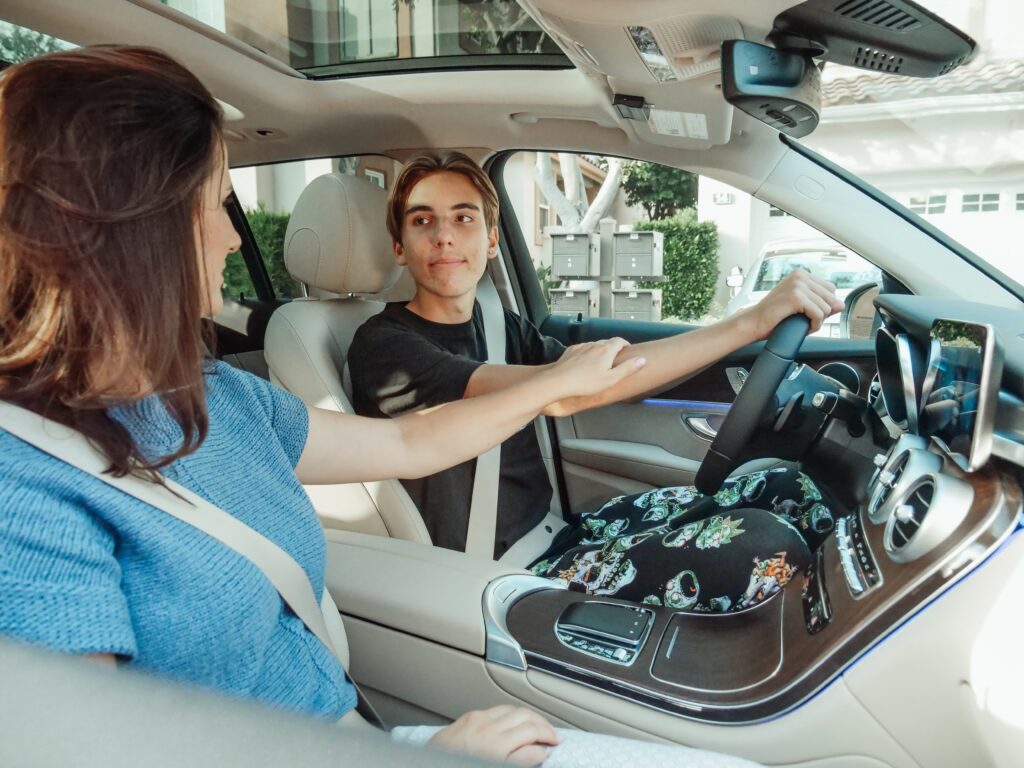Wait. Drowsy Driving is like Drunk Driving?

You’d never risk being a drunk driver, right? You know the tragic results of a drunk driving crash are very real. There may even be a person in your life who’s been affected by drunk driving. We all know better than to drink and drive.
Similar to most teens your age, you probably think driving while drunk is riskier than driving while you’re sleepy. And that’s what most adults think, too. But, when people drive after sleeping four hours or less, it’s like they’re driving drunk. Almost everyone in a new study of over 1,100 teens said drowsy driving is extremely or very risky. But by comparison, almost 25% fewer teens in the same study said that drowsy driving had the same level of risk. It’s time to wake up to the fact that drowsy driving is impaired driving, too. Remember this: sleep first and drive alert.
The good thing is that most teens say they don’t drive while drowsy. If this is you, keep it up, because the statistics only get worse among adult drivers. So, where to start? Start with your sleep. Right now, life can be hectic and sometimes it feels like sleep is the last thing on your mind. But people 16-25 already are in the highest risk group for drowsy driving crashes. The good thing is your sleep is something you can take control of—be sure to get enough (as many as 10 hours a night) so you can stay healthy and ready to perform. That includes being alert behind the wheel if you are driving.
Here’s why teenagers are more susceptible to drowsy driving
- Chronic Sleep Deprivation: Teens actually need more sleep than adults. Your brain is still developing, and NSF recommends that you get 8-10 hours of sleep each night.
- Learning to Drive: Teens are relatively new to driving, which means you have less experience and fewer driving skills to rely on during emergencies.
- Early School Hours: Many schools have early start times, which don’t always sync up with your internal body clock, also called your circadian rhythm.
- Busy Schedules: Between school, jobs, family commitments, extracurricular activities, homework, and late-night screen time with friends, teens often sacrifice sleep to fit everything in.
How to ensure you get enough sleep
- Prioritize Sleep: Try to put Sleep First™. The National Sleep Foundation recommends 8-10 hours of sleep a night for teens.
- Naps: Short power naps (20-30 minutes) can recharge you if you’re feeling tired during the day. But don’t nap for hours – it’ll mess up your nighttime sleep.
- Limit Screen Time: Cut down on screens before bedtime. That means less late-night scrolling and binge-watching.
- Start Your Day with Light: In the morning, spend time in bright outdoor light to feel most alert.
Driving when you’re really sleepy is just as risky as driving while under the influence of alcohol, drugs, or distractions. Not getting enough quality sleep can jeopardize your safety behind the wheel.
Stay safe on the road
- Don’t Hesitate to Get a Ride: If you’re burning the midnight oil studying or coming home late from an event, don’t feel pressured to drive when you’re exhausted. Consider reaching out to a parent or a friend for a ride if you’re too worn out to drive safely.
- Buddy Up Behind the Wheel: Having a friend in the car can help keep you alert. If your passenger is more awake, switch positions and let the alert driver take control. When embarking on long journeys, plan with your companions or fellow driver to switch every hour or so.
- Take a Power Nap: If you’re feeling tired before hitting the road, take a quick 20-minute nap.
- Spot the Warning Signs: Learn to recognize signs of fatigue among yourself and your friends, including frequent yawning, struggling to keep your eyes open, having trouble remembering recent miles driven, missing exits or road signs, drifting into other lanes, hitting rumble strips, and more.
Remember, we’re all in this together. And good habits you start now can be even more important as you get older. Let’s keep our roads safe and make responsible choices behind the wheel. Your life and the lives of others depend on it. Sleep First. Drive Alert.™